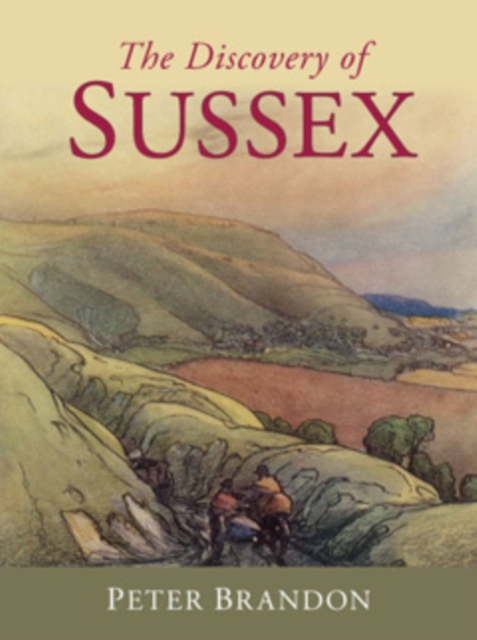
The Discovery of Sussex Hardback
by Peter Brandon
Hardback
Description
There is a greater difference between life in Sussex today and life one hundred years ago than there was between the times of our great-grandparents and of Queen Elizabeth, for in 1900 Sussex away from the seaside resorts had more in common with the Sussex of 1700 than today's county.
Horse power still set the pace of life and thistledown floated up from the spacious sheepwalks in high summer.
Hazel and chestnut coppice was still cut regularly, men had not left off singing, and the bell-teams of wagon horses on the road were familiar sounds in what was called 'sleepy, snoozy, Sussex'. This book examines the social, cultural and environmental changes which went into the making of modern Sussex from the end of the 18th century, particularly those that resulted from the invasion of wide-eyed Londoners as tourists and health-seekers, writers and artists, weekenders or permanent residents, in the half-century up to 1939.
Those in favour of innovation and progress, who wanted to let things run their course, gave their active or tacit support to change, but there were others who abhorred the modern age and tried angrily to reverse the process.
There were also those who fought on behalf of the countryside and resisted urbanisation by means of landscape protection, thus saving much of the county from bricks and mortar. Sussex became a foil to the metropolis on its doorstep, functioning as a re-discovered Eden in the guise of an undeclared national park, with values and lifestyles at variance with those of the capital city.
The remarkable efflorescence of painting, writing, arts and crafts, domestic architecture, and landscape design and planning was deeply affected by the nostalgia for the countryside which accompanied the rapid and largely unplanned metropolitan growth.
Writers and promoters of tourism created a rural ideology designed to meet the strains and stresses of the new urban mode of existence.
Information
-
Out of Stock - We are unable to provide an estimated availability date for this product
- Format:Hardback
- Pages:288 pages
- Publisher:The History Press Ltd
- Publication Date:28/07/2010
- Category:
- ISBN:9781860776168
Information
-
Out of Stock - We are unable to provide an estimated availability date for this product
- Format:Hardback
- Pages:288 pages
- Publisher:The History Press Ltd
- Publication Date:28/07/2010
- Category:
- ISBN:9781860776168






